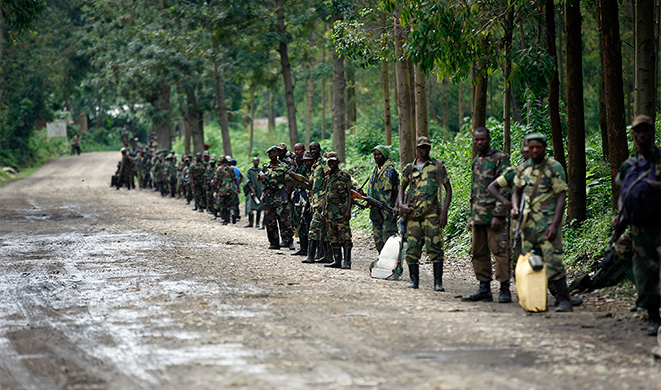
The situation in eastern Congo continues to deteriorate, threatening to spiral out of control into an all-out war involving several neighboring countries. Throughout the latest explosion and previous cycles of conflict, the root causes of war are not being and have not been addressed, leaving "peace processes" to focus on flimsy power-sharing arrangements that have undermined the sovereignty of the Congolese state and the professionalism of its armed forces.
- Part One of the three-part series: A Broadened Peace Process Is Needed in Congo

